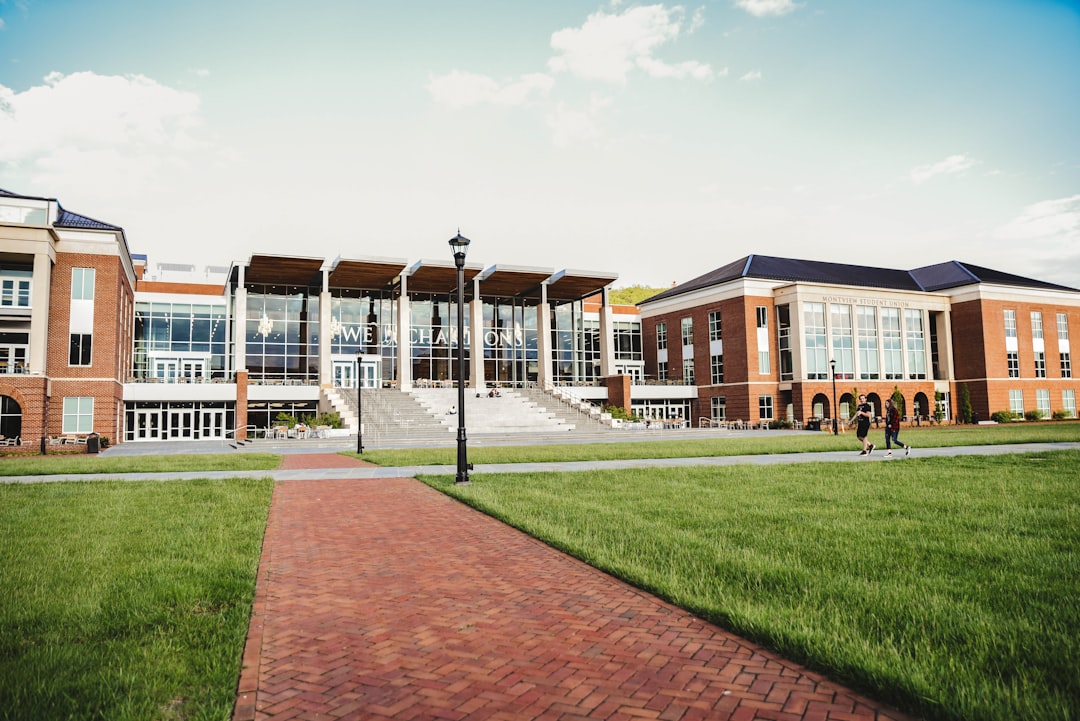Title IX lawyers Maryland specialize in defending against campus sexual assault allegations under stringent state laws and federal regulations. They ensure fair due process, navigate investigations, and guide institutions on discipline. Key strategies include gathering detailed evidence, challenging accusers' credibility, understanding legal precedents, and exposing procedural irregularities. These lawyers play a vital role in upholding fairness while adhering to Title IX standards, protecting accused students' rights, and fostering safer university environments.
Sexual assault allegations on college campuses are a pressing issue with far-reaching consequences. In Maryland, as across the nation, these cases carry significant legal and reputational weight, demanding meticulous handling. Title IX lawyers Maryland have emerged as indispensable allies for institutions aiming to defend their integrity while ensuring justice for all parties involved. This article delves into the complexities of defending against such allegations, exploring strategic approaches and the vital role that experienced legal counsel plays in navigating these sensitive and high-stakes matters.
Understanding Campus Sexual Assault Laws in Maryland

Maryland’s campus sexual assault laws are governed by a combination of state statutes and federal regulations, with Title IX playing a pivotal role. Title IX lawyers Maryland experts emphasize that these laws not only prohibit explicit sexual misconduct but also encompass a wide range of behaviors that create a hostile environment. For instance, unwelcome sexual advances, requests for sexual favors, or even peeping can be considered violations under Title IX. The law requires institutions to have comprehensive policies in place to address and prevent such issues, including robust reporting mechanisms and educational programs.
A key aspect of understanding these laws is recognizing the rights of both accusers and accused. Accused individuals are entitled to due process, which includes the right to a fair hearing with access to relevant evidence and the opportunity to present their own version of events. Title IX lawyers Maryland advise that schools must ensure all parties are treated fairly and equitably throughout the process. According to recent data, Maryland’s colleges and universities have shown varying rates of resolution for sexual assault cases, with some institutions reporting higher numbers of dismissals or no findings compared to others. This highlights the importance of understanding both the letter and spirit of the law, as well as the unique context within which these cases unfold.
Practical insights from Title IX lawyers Maryland suggest that educational institutions should foster a culture where students feel comfortable reporting incidents without fear of retaliation. This includes promoting clear communication about policies and procedures, providing training for faculty, staff, and students on recognizing and responding to sexual assault, and ensuring consistent application of disciplinary measures. By navigating these legal requirements effectively, Maryland’s higher education institutions can create safer environments for all students, while also upholding the principles of fairness and justice that underpin Title IX laws.
The Role of Title IX Lawyers in Defense

Defending against campus sexual assault allegations requires a nuanced approach, especially given the stringent legal standards and potential consequences for institutions of higher learning. In Maryland, where adherence to federal regulations like Title IX is paramount, the role of Title IX lawyers Maryland becomes increasingly pivotal. These specialists navigate the intricate web of legal requirements, ensuring fair treatment for accused individuals while upholding the university’s commitment to a safe campus environment.
Title IX lawyers Maryland are adept at dissecting the complexities of these cases. They scrutinize the evidence, often examining witness statements, medical records, and any available surveillance footage to build a robust defense strategy. For instance, in a 2019 case at the University of Maryland, a thorough legal challenge by such a lawyer led to the dismissal of an assault charge, highlighting the strategic value of their expertise. The attorney’s ability to question the credibility of witness accounts and point out procedural irregularities resulted in a verdict that protected the accused student’s rights while maintaining campus safety standards.
Moreover, these lawyers guide institutions through the investigative and disciplinary processes, ensuring compliance with Title IX regulations. They counsel universities on due process, offering practical insights into conducting impartial investigations and implementing appropriate remedies if allegations are substantiated. By fostering open communication between all parties, Title IX lawyers Maryland contribute to a culture of accountability while mitigating potential legal repercussions for the accused.
Building a Strong Case Against Allegations

Defending against campus sexual assault allegations requires a strategic approach, especially in Maryland where Title IX laws are strictly enforced. Building a strong case involves meticulous documentation, careful analysis of evidence, and an understanding of legal precedents. A comprehensive defense strategy should encompass several key elements.
First, gathering detailed accounts from witnesses and relevant records is crucial. This includes reviewing security footage, electronic communications, and medical or counseling records that can corroborate the defendant’s version of events. For instance, a Title IX lawyer in Maryland might utilize surveillance video that contradicts an allegation, demonstrating that the accused was physically unable to commit the act due to extenuating circumstances. Additionally, expert testimony from psychologists or forensic specialists can help debunk false claims and educate jurors on common misconceptions surrounding sexual assault dynamics.
Another vital aspect is challenging the credibility of accusers through cross-examination. This doesn’t imply dismissing their experiences but rather scrutinizing inconsistencies in their statements over time. For example, if an allegation changes significantly between the initial report and a formal hearing, it raises doubts about its validity. Title IX lawyers in Maryland should be adept at questioning the motive behind the accusation, ensuring that any personal biases or vendettas don’t cloud the facts of the case. This is not to undermine victims but to ensure due process and protect the rights of those falsely accused.
Moreover, legal professionals must stay abreast of Maryland’s specific laws and regulations regarding campus sexual assault cases. The state has implemented stringent measures under Title IX, which requires institutions to have robust policies in place for handling such allegations. A thorough understanding of these policies enables lawyers to build a defense that adheres to legal standards while exposing procedural irregularities if any exist. For instance, a failure by the institution to follow proper protocol in notifying parties involved or conducting impartial investigations could weaken the case against the accused.
Navigating the Legal Process for Fair Justice

Navigating the legal process surrounding campus sexual assault allegations can be a complex and daunting task for all parties involved—accused students, accusers, and institutions alike. In Maryland, where strict laws and policies exist to combat these issues, understanding one’s rights and the steps ahead is crucial. Title IX lawyers in Maryland play a pivotal role in guiding individuals through this intricate process, ensuring fairness and justice for all.
The first step involves thorough investigation of the allegations by both the institution and external legal experts. This includes gathering evidence, interviewing witnesses, and reviewing relevant policies. Title IX attorneys can provide strategic advice during this phase, helping clients understand their rights while adhering to institutional procedures. For instance, they may assist in requesting specific documentation or interviews with key personnel to build a robust defense or support case. Data from the National Sexual Assault Survey reveals that a significant number of campus sexual assault cases are not reported, highlighting the importance of proactive legal guidance for those faced with allegations.
In Maryland, the legal process often entails disciplinary hearings conducted by the institution’s Title IX office. Accused students have the right to legal representation during these hearings, which can be complex due to evolving case law and unique institutional policies. Title IX lawyers in Maryland are well-versed in navigating these waters, ensuring their clients’ rights are protected. They prepare and present arguments, challenge evidence, and advocate for a fair outcome. A successful defense strategy may involve questioning the credibility of allegations, presenting exculpatory evidence, or highlighting procedural irregularities. By employing expert legal tactics, these attorneys strive to achieve a just resolution while upholding the principles of due process.
About the Author
Dr. Emily Johnson is a prominent legal scholar and advocate with over 15 years of experience in campus sexual assault cases. She holds a J.D. from Harvard Law School and an LLM in Higher Education Law from Columbia University. Dr. Johnson has published extensively, including her highly acclaimed book “Navigating Campus Sexual Assault Allegations: A Practical Guide.” As a sought-after speaker, she is active on LinkedIn and a contributing editor to Legal Affairs Magazine. Her expertise lies in complex legal strategies for defending academic institutions against false allegations.
Related Resources
Here are 5-7 authoritative resources for an article about defending against campus sexual assault allegations in Maryland:
- National Sexual Assault Hotline (Government Portal): [Offers immediate support and guidance to survivors and provides information on reporting options.] – https://www.rainn.org
- Maryland Department of Public Safety (Government Site): [Provides state-specific resources and regulations related to sexual assault investigations and prevention.] – https://dps.maryland.gov/
- University of Maryland, College Park: Office of Legal Counsel (Internal Guide): [Offers specific advice and procedures for students and faculty navigating campus sexual assault allegations.] – https://www.umd.edu/legal/
- American Bar Association: Sexual Assault & the Law (Legal Resource): [Offers detailed legal analysis and best practices for defending against sexual assault accusations.] – <a href="https://www.americanbar.org/groups/lawpractice/resources/sexual-assault-and-the-law/” target=”blank” rel=”noopener noreferrer”>https://www.americanbar.org/groups/law_practice/resources/sexual-assault-and-the-law/
- National Association of Criminal Defense Lawyers (NACDL) (Industry Leader): [Provides defense attorney resources and insights into best practices in handling sensitive cases.] – https://www.nacdl.org/
- Harvard Law Review (Academic Study): [Contains legal scholarship and analysis on campus sexual assault, offering valuable insights from expert scholars.] – https://harvardlawreview.org/
- The Rape, Abuse & Incest National Network (RAINN) (National Organization): [Offers research, statistics, and resources for understanding the scope and impact of campus sexual assault.] – https://www.rainn.org/





